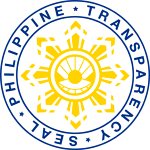
Located at the foot of Mount Pangasugan, the College of Veterinary Medicine, Visayas State University (CVM-VSU) has several to boast about its Doctor of Veterinary Medicine degree program. It is second to none in the Visayas; it ranked third in the country in the National Veterinary Licensure Exam in the last two years; it has produced at least 13 topnotchers in the National Veterinary Licensure Exam (VMLE); it has consistently averaged above the national passing percentage, and a graduate employability of about 100% either locally or abroad, with some occupying top management positions or having their own clinical practice.
The CVM is proud of its colorful history, beginning in 1978 as the Department of Animal Science and Veterinary Medicine (DASVM) when Visayas State University (VSU) was then the all-time famous Visayas State College of Agriculture (ViSCA). DASVM started with its 4-year degree program, the Bachelor of Animal Science (BAS) with two majors: Animal Production and Animal Health. The subsequent years saw a number of revisions culminating in the offering of the 6-year Doctor of Veterinary Medicine degree program.
In 1991 in particular, DASVM instituted a 2-year curriculum, consisting of paraclinical and clinical courses to ladderize the existing BAS-Animal Health program to Doctor of Veterinary Medicine (DVM). This allowed students to pursue the DVM degree after graduation from BAS-Animal Health. DASVM was unique at that time as it was offering three degree programs and its DVM graduates obtaining 2 diplomas. In 2000, unfortunately, the Technical Panel of Agricultural Education in Veterinary Medicine (TPAE-Vet Med) did not approve of DASVM’s ladderized curriculum relative to the accreditation of its DVM program. Thus, a proposal was submitted to offer a straight 6-year DVM degree program, which was approved on January 20, 2001, through the Board of Trustees’ (BOT) Resolution No. 15, series of 2001.
Further revisions of the degree program were in response to different accreditation reviews of no less than the Commission on Higher Education (CHED), Accrediting Agency of Chartered Colleges and Universities in the Philippines (AACCUP), and the Professional Regulation Commission (PRC). The most recent revision was timed with the implementation of the K-12 educational system in the Philippines when the CHED issued Memorandum Order (CMO) No. 1, series of 2018. This necessitated changes in the content and order of the course offerings of the existing DVM degree program and institution of new courses on animal welfare, aquatic animal, bee medicine, “One Health,” and entrepreneurship. The proposal relative to this was approved by VSU’s Board of Regents (BOR) through Resolution No. 55, s. of 2018 and subsequently awarded the certificate of program compliance (COPC) by CHED on June 11, 2020.
The new DVM curriculum features one year of general education courses and five years of professional veterinary medicine courses with a total of 243 units. The courses include 50 units of general education courses, 14 units of basic science courses, 25 units of zootechnics courses, and 154 units of veterinary medicine courses. Thus starting school year 2018–2019, the new curriculum was applied to all incoming students in the DVM program. Existing students who started their degree program under the old curriculum, however continue to receive support from the CVM in order for them to complete the prescribed courses until they finish all their degree requirements.
All of these are because of CVM’s strong commitment to Policies, Standards, and Guidelines for Doctor of Veterinary Medicine (DVM) Program set by CHED. In addition, the college is firm in its desire to give the best education possible to its graduates, equipping them with 21st century and Industry 4.0 knowledge and skills to be able to carry out the duties of safeguarding animal health, public health, and the environment in both local and international settings. This is why from its humble beginnings of having only three enrollees, today the second to the youngest veterinary college in the Visayas has grown exponentially to 462 students.
Amidst this difficult time, the CVM and VSU community as a whole have endeavored to cushion the effects of the COVID-19 pandemic by launching various programs, including the development of instructional materials for remote learning. This is to ensure support to students as they continue their studies remotely. Together with its 16 passionate and enthusiastic faculty, who obtained their respective graduate education in top schools in the Philippines and across the globe in countries such as Australia, Austria, Belgium, Croatia, and Sweden, and seven competent staff, we await you to be part of our elite graduates in the college we consider CVM Family.







